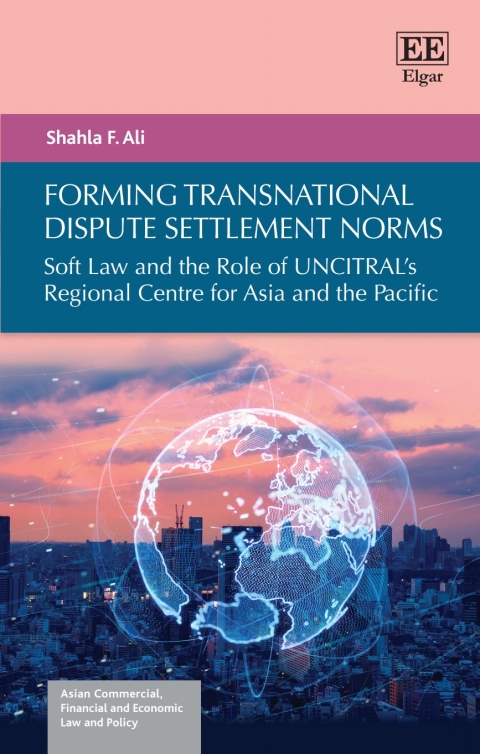
Forming Transnational Dispute Settlement Norms : Soft Law and the Role of UNCITRAL's Regional Centre for Asia and the Pacific PDF
288 Pages·2021·1.3661 MB·other
Most books are stored in the elastic cloud where traffic is expensive. For this reason, we have a limit on daily download.
Preview Forming Transnational Dispute Settlement Norms : Soft Law and the Role of UNCITRAL's Regional Centre for Asia and the Pacific
Description:
This thought-provoking book examines whether regional centres associated with global legal institutions facilitate expanded citizen engagement in global soft law making. Through an analysis of empirical research into the role of decentralized soft law making in the East Asian region, it investigates the influence of such regional centres in overcoming representational deficits in the design of cross-border dispute settlement norms. Shahla F. Ali analyses survey data, in-depth case studies and UNCITRAL participation records to provide a comprehensive view of the contributions of Asia Pacific states in the development and refinement of UNCITRAL dispute settlement instruments. She argues that this has corresponded with the emergence of a new form of decentralized transnational legal ordering, advancing representation and legal innovation at both regional and global levels. The book concludes that these findings support the expansion of regional centres in areas with historically limited representation in global law making. Students, scholars and practitioners of transnational dispute resolution and comparative law will find this book to be critical reading. Its identification of best practices and law and policy recommendations will also be of interest to those working in global legislative design and policy.
See more
The list of books you might like
Most books are stored in the elastic cloud where traffic is expensive. For this reason, we have a limit on daily download.
